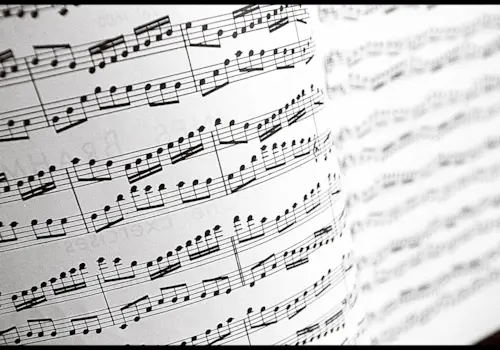Teacher Melanie Spanswick gives her advice on how - and why - attuning our listening skills can make us better piano players
One of the most important piano playing skills that we need to assimilate is the ability to listen.
I spent my college years struggling with aural tests, especially the atonal ones! But, years later, when I decided to stop playing concerts altogether and focus on teaching and writing, I, rather strangely and surprisingly, developed another ‘ear’; all of a sudden I found that I could easily pitch notes in fairly complex chords, and whilst I don’t have ‘perfect’ or absolute pitch, I have developed ‘relative’ pitch.
How did I do this? It was a case of listening astutely, often away from the piano, and in a slightly different manner. Here are a few ideas to attune your listening skills:
1. Play the tonic chord of every key and think about how it sounds and how it makes you feel
I found it useful to become acquainted with ‘how’ each key sounds. Is it warm and joyous or cold and sharp (or with an ‘on edge’ or anxious quality to it), or is it mysterious and quixotic?
If you listen often and carefully enough, you’ll begin to notice the difference. As a general rule, flat keys are warmer and more mellifluous, and sharp keys are chillier and, possibly, more distant. And when any type of music played on the radio, TV or my computer, I would set myself the task of guessing the key. I would then immediately go to the piano to check if I was right – and this was rather fun.
2. Sing your way up and down the keyboard
I started to sing. Not in a choir, or in public I hasten to add (perish the thought!), but along to any music I could find. I would seek out music which featured chords and chord progressions (hymns are a great place to start), and I would sing each line, moving up and down every note of a triad so I was clearly aware of the bass note, and where the chords were moving, harmonically.
After a period of time, this became quite a simple test.

Composing is a wonderful vehicle for learning many elements about music
3. Try your hand at composing
Probably the most useful skill which most certainly helps to develop our ear, is learning to compose.
You may not really want to write your own music, but the act of doing so, even at the piano, will establish certain listening skills. Writing chords, rapid or scalic passages, or arpeggios figures, requires getting into the ‘nuts and bolts’ of how music sounds, and how it is written down; this most definitely draws your attention to how composers construct their music, and it’s a wonderful vehicle for learning many elements about music.
Task: Why not try to write a short piano piece? Select your key, aim to write 12-16 bars, and let your imagination take flight. You may even surprise yourself.
4. Slow down and actively listen
"Never play faster than you can think," said British pianist, piano professor and writer Tobias Matthay (1858-1945), and it’s great advice.
We often don’t really ‘think’ about how we sound when we play the piano. Or, more specifically, how our playing sounds. We go through the motions, frequently worrying about technical aspects and ‘how to get around the notes’, but often without thinking about the music. If you can apply Matthay’s advice, that is, to be able to slow down a performance sufficiently, it will feel more controlled and you are then free to ‘listen’ to what you are actually playing.

By playing softly and slowly, you will begin to pay attention to what you are doing
5. Play quietly to hear every little nuance
Try to start a practice session with a slow, soft performance of a piece. Play quietly, and observe everything in the score; the rests, pauses or punctuation marks, articulation, etc. Every little nuance needs concentration and focus, and, by playing softly and slowly, you will begin to pay attention to what you are doing. After a while, this will become a habit, and your ears will begin to attune.








